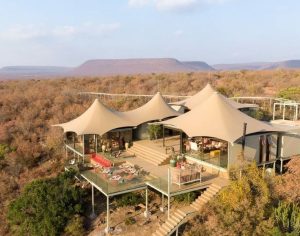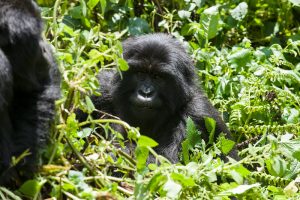What are camping safaris in Rwanda?
Camping safaris in Rwanda allow visitors to experience the country’s wilderness by staying in tents or designated campsites inside or near national parks. These safaris immerse travelers in nature, offering direct encounters with Rwanda’s landscapes, wildlife, and local culture. Unlike lodge safaris, camping safaris provide a more adventurous, close-to-nature experience where tourists sleep under the stars and wake up to the sounds of the wild. Rwanda’s camping safaris are available in different settings, ranging from basic public campsites to luxury tented camps, giving travelers flexibility depending on their budget and preference.
Why should you choose camping safaris in Rwanda?
Tourists choose camping safaris in Rwanda for their affordability, authenticity, and adventure. Rwanda’s national parks, including Volcanoes National Park, Akagera National Park, and Nyungwe Forest National Park, offer stunning biodiversity, and camping provides an unmatched way to connect with these ecosystems. Camping safaris are also cost-effective compared to staying in luxury lodges, making them accessible to more travelers. Beyond affordability, camping offers adventure enthusiasts the chance to experience Rwanda’s landscapes up close, enjoy star-lit nights, and appreciate the tranquility of natural surroundings.
Which national parks in Rwanda allow camping safaris?
Three major national parks in Rwanda allow camping safaris. Volcanoes National Park is famous for gorilla trekking and offers camping opportunities in its surrounding areas. Akagera National Park, known for its savannah wildlife and the Big Five, provides organized campsites where visitors can camp while enjoying game drives. Nyungwe Forest National Park, home to chimpanzees and other primates, also offers forest-edge camping experiences. In addition, smaller nature reserves and private campsites exist, especially near Lake Kivu and other scenic spots.
What wildlife can you see on camping safaris in Rwanda?
Wildlife sightings vary depending on the park. In Akagera National Park, campers can spot elephants, lions, buffaloes, giraffes, zebras, and antelopes. Birdwatchers will enjoy over 500 bird species. Volcanoes National Park is home to mountain gorillas, golden monkeys, and forest elephants, though gorilla trekking requires a separate permit. Nyungwe Forest National Park offers primate viewing opportunities such as chimpanzees, colobus monkeys, and mangabeys. Camping safaris in Rwanda provide a unique chance to observe both large mammals and smaller wildlife species in their natural habitats.
What types of camping safaris are available in Rwanda?
Rwanda offers three main types of camping safaris. Basic camping involves using public campsites with simple facilities such as pit latrines and open spaces for tents. Mid-range camping safaris may include semi-permanent tents, mattresses, and basic meals provided by operators. Luxury camping, also known as glamping, combines comfort and wilderness with en-suite tents, full-service meals, and guided experiences. This variety ensures that visitors can choose the camping safari style that matches their budget and comfort preferences.
What facilities are offered at campsites in Rwanda?
Facilities vary depending on the campsite. Public campsites usually provide basic amenities such as designated tent areas, pit latrines, and occasionally running water. Managed campsites within national parks like Akagera offer more developed infrastructure, including clean toilets, showers, and designated cooking areas. Luxury camping facilities provide en-suite bathrooms, comfortable bedding, dining areas, and in some cases, electricity. Campers should always confirm available facilities before booking to prepare accordingly.
How much do camping safaris in Rwanda cost?
Camping safaris in Rwanda vary widely in cost depending on the type of camping and services included. Basic camping safaris may cost between $30 and $100 per night, excluding park entry fees and permits. Mid-range options, including guided camping tours, can cost between $150 and $300 per person per night. Luxury camping safaris, especially those operated in private camps, can cost $400 and above per person per night. Tour operators often offer packages that include transportation, camping gear, meals, and guiding services.
When is the best time for camping safaris in Rwanda?
The best time for camping safaris in Rwanda is during the dry seasons, which run from June to September and December to February. These months provide better conditions for camping, wildlife viewing, and trekking activities since trails are less muddy, and wildlife tends to gather around water sources. While camping is possible year-round, the rainy seasons (March to May and October to November) may present challenges due to heavy rains, slippery trails, and increased insect activity.
How safe are camping safaris in Rwanda?
Camping safaris in Rwanda are generally safe, especially when organized through registered tour operators or at designated campsites managed by Rwanda Development Board (RDB) or private operators. Campsites in national parks often have security measures in place, such as park rangers or trained staff. Visitors are advised to follow park regulations, avoid wandering alone at night, and always listen to the instructions of guides and rangers. Wildlife encounters are managed responsibly, ensuring camper safety.
What permits do you need for camping safaris in Rwanda?
Camping itself does not require special permits; however, entry into Rwanda’s national parks requires park entry fees. For example, Akagera National Park charges an entry fee, while Volcanoes National Park requires separate permits for gorilla trekking ($1500 per person). Nyungwe Forest National Park requires permits for chimpanzee tracking. Visitors should check with Rwanda Development Board or licensed tour operators to confirm the permits needed for activities combined with camping safaris.
What should you pack for a camping safari in Rwanda?
Packing for a camping safari in Rwanda requires preparation. Essential items include a good-quality tent, sleeping bag, insect repellent, sunscreen, sturdy walking shoes, and layered clothing for varying temperatures. A flashlight, reusable water bottle, and a first aid kit are also important. For luxury camping, many items such as bedding and meals are provided, but for basic camping, self-catering equipment and personal gear are essential. Waterproof clothing is recommended during the rainy season.
Can you combine camping safaris with gorilla trekking in Rwanda?
Yes, camping safaris can be combined with gorilla trekking, especially near Volcanoes National Park. While the park itself does not have camping inside its protected area, campsites and tented camps are available nearby. Visitors often camp before or after gorilla trekking, allowing them to blend adventure with one of the most unique wildlife experiences in the world. Combining camping and gorilla trekking is popular among travelers seeking budget-friendly options compared to luxury lodges.
How do camping safaris in Rwanda compare with lodge safaris?
Camping safaris provide a more adventurous and affordable alternative to lodge safaris. While lodges offer comfort, modern facilities, and convenience, camping immerses visitors directly in Rwanda’s natural environment. Campers wake up surrounded by wildlife sounds, enjoy starry skies, and often interact more closely with nature. Lodge safaris, however, provide more comfort, making them ideal for travelers who prefer convenience. The choice depends on budget, comfort preference, and desired level of adventure.
Are there guided camping safaris in Rwanda?
Yes, guided camping safaris are available in Rwanda. Tour operators provide professional guides who handle camping logistics, wildlife interpretation, and safety. Guided camping safaris may also include meals, transportation, and park entry arrangements. This option is ideal for first-time campers or those who prefer an organized experience. Guides also enhance the safari by providing detailed information about Rwanda’s wildlife, ecosystems, and cultural heritage.
Can families and children go on camping safaris in Rwanda?
Families and children can participate in camping safaris in Rwanda, especially in family-friendly campsites. Some camps offer facilities suitable for families, including larger tents and guided family activities. However, gorilla and chimpanzee trekking activities have a minimum age requirement of 15 years. Families with younger children can enjoy camping in Akagera National Park, which offers safer game drives, boat trips, and child-friendly wildlife viewing opportunities.
Are there luxury camping or glamping options in Rwanda?
Rwanda offers luxury camping, also known as glamping, in select parks and private camps. These options combine the adventure of camping with the comfort of hotel-like amenities. Glamping tents often feature en-suite bathrooms, king-sized beds, fine dining experiences, and scenic views. Luxury camping is popular among travelers seeking an immersive wilderness experience without sacrificing comfort. Glamping options are available near Akagera, Volcanoes, and Nyungwe.
What cultural experiences can you enjoy during camping safaris in Rwanda?
Camping safaris in Rwanda often integrate cultural experiences, including community visits, traditional dance performances, and local craft demonstrations. Camps near Volcanoes National Park and Lake Kivu provide access to cultural villages where visitors can learn about Rwandan traditions, farming practices, and history. These experiences enhance camping safaris by combining wildlife encounters with cultural immersion.
How do you prepare for a camping safari in Rwanda?
Preparation for a camping safari involves booking with reputable tour operators, confirming park entry requirements, and packing appropriate gear. Visitors should also prepare physically for activities such as hiking and trekking. Health preparations, including malaria prevention and necessary vaccinations, are recommended. Financial preparation is important as some activities, like gorilla trekking, require significant investment. Proper planning ensures a safe and enjoyable camping safari.
What rules and guidelines should campers follow in Rwanda’s national parks?
Campers must follow Rwanda Development Board regulations when camping in national parks. These include respecting wildlife by maintaining a safe distance, not feeding animals, and disposing of waste responsibly. Campfires should only be made in designated areas. Noise levels should be kept low to preserve the natural environment. Visitors must also respect park rangers’ instructions at all times for safety and conservation reasons.
Which tour operators offer camping safaris in Rwanda?
Several licensed tour operators in Rwanda specialize in camping safaris. These operators provide guided camping tours, equipment, and logistical support. Popular operators include those registered with Rwanda Development Board, ensuring safety and professionalism. Many operators offer tailor-made safari packages that combine camping with activities such as gorilla trekking, game drives, bird watching, and cultural visits.




